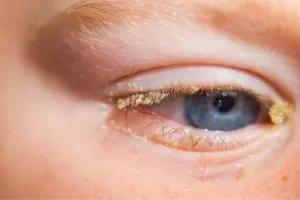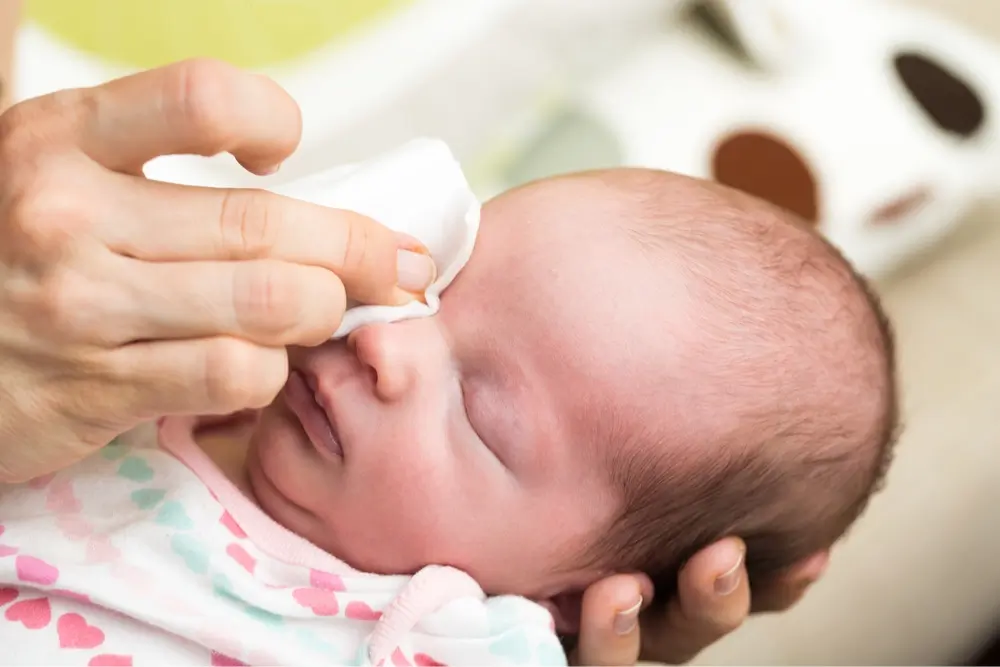Conjunctivitis- what causes it and how it’s treated
What is conjunctivitis?
Conjunctivitis is a common infection of the eye. The conjunctiva is the clear membrane covering the white of the eye and the inner part of the eyelid. In conjunctivitis, this membrane gets inflamed, leading to redness and irritation.
What causes conjunctivitis?
Several things can cause conjunctivitis:
- Bacterial infection
- Viral Infection (this is the most common cause, and often the person will have a head cold too)
- Allergy to dust, pollen, animal hair or some other trigger
What are the symptoms of conjunctivitis?
The typical symptoms of conjunctivitis include:
- Redness of the eyes
- Watering of the eyes
- Sticky discharge (which may get dry and crusty, especially overnight)
- Puffiness around the eyes
- Occasionally, there may be an aversion to bright light (photophobia).
In bacterial conjunctivitis, there is often a gritty feeling and green or yellow discharge in the eyes. Viral conjunctivitis may look quite similar, though there may be less discharge. Symptoms may last from a few days up to two weeks.
If allergy is the cause, the eyes may be quite itchy, and the person may also experience sneezing and a runny nose.
How do you get conjunctivitis?
- Viral and bacterial conjunctivitis are spread by contact with an infected person- via touching, coughing, sneezing, or sharing water while bathing or swimming.
- Symptoms usually start 2-3 days after being infected.
For how long is conjunctivitis contagious?
Viral and bacterial conjunctivitis is contagious as long as there is discharge being produced. The risk of spreading it is reduced by maintaining good hand hygiene. However, this can be hard to manage with children!
Are any tests needed?
- Usually, a doctor can make the diagnosis based on the typical symptoms of conjunctivitis.
- If it does not respond to usual eye drops, or if it seems particularly severe, a swab may be taken to clarify the cause.
- If a newborn develops conjunctivitis, the doctor may also need to exclude Chlamydia- if a mum has Chlamydia she can pass it to the baby during delivery, and it can present as an eye infection.
What is the treatment for conjunctivitis?
- In over half of cases, symptoms of conjunctivitis will settle within 2-5 days without any treatment. However, because many affected children attend school or childcare, parents are often keen for treatment to be started, so they will get better quickly and can go back as soon as possible. In effect, this means that some viral cases probably get unnecessarily treated with antibiotic drops.
- Self-care for conjunctivitis in adults includes removal of any contact lenses until the infection is gone, and lubricant eye drops may also give some relief.
- Good hand hygiene is also important to reduce spread to others.
- Viral Conjunctivitis will get better by itself. It may help to gently wipe away any discharge with cotton wool and warm water. These cotton balls should be wiped in one direction only and then discarded. You should never try to wipe inside the eyelids, as it may cause more irritation.
- Bacterial Conjunctivitis will also usually get better by itself, but will settle more quickly if antibiotic eyedrops are used. They should be applied to both eyes, even if only one seems to be infected.
- If a person who wears contact lenses develops symptoms of conjunctivitis, antibiotic drops are usually recommended, as they may be prone to more severe infection.
- Allergic Conjunctivitis is treated with anti-allergy treatments such as antihistamine tablets and anti-allergy eyedrops. If a person has bad nasal symptoms with their hay fever, steroid nasal sprays may help both the nose and eye symptoms.
Does breastmilk work for conjunctivitis?
- Some mums apply drops of their own breastmilk into baby’s eyes a few times a day to treat conjunctivitis, as breastmilk is known for its antibacterial qualities. This home remedy has been around for years, in many different cultures around the world.
- Some recent research appears to show that breastmilk may be as effective as antibiotic drops in some cases, but more research is needed to be certain of this.
- However, in newborns, or in any case where the symptoms of conjunctivitis are bad, it’s important to seek a doctor’s advice in case swabs are required. And certainly, if symptoms are severe or worsening, immediate medical attention is advisable.
What are the warning signs that I should go back to the doctor?
If the following symptoms develop ( even if antibiotic eyedrops have been started), there may be something more serious going on, and you should seek immediate medical attention:
- Severe eye pain
- Significant redness, pain and swelling around the eyes
- High fever and feeling generally unwell
- If your eyesight is affected
If you have any concerns about symptoms of conjunctivitis, speak to your GP.
Getting a Mental Health Care Plan in Australia: Your Guide
Getting a Mental Health Care Plan in Australia: Your Guide Mental health matters—and if you’re feeling overwhelmed, anxious, or down, a mental health care plan can help. But what is it, and how do [...]
UTI Symptoms and Treatment: What You Need to Know
UTI Symptoms and Treatment: What You Need to Know Urinary Tract Infections (UTIs) are common, uncomfortable, and often disruptive. But what exactly are the signs to watch for, and how can you get relief [...]
Free Mental Health Care Plan Online | Bulk-Billed by Qoctor
Free Mental Health Care Plan Online | Bulk-Billed by Qoctor Discover how to get a free, bulk-billed Mental Health Care Plan (MHCP) in Australia through Qoctor's telehealth service. Accessing [...]






